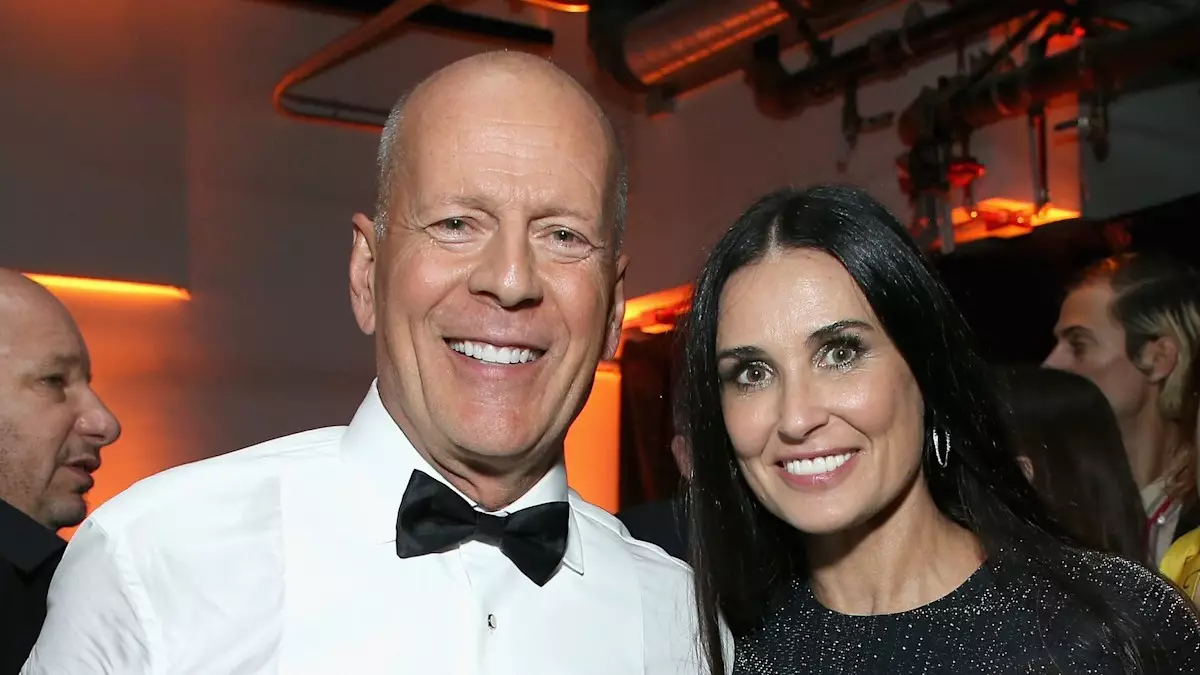In recent years, the dynamics of family have shifted dramatically, challenging traditional notions of what it means to be a family. A perfect example of this evolution is the relationship between Hollywood icons Demi Moore and Bruce Willis, who, despite being divorced for over two decades, have successfully navigated the complexities of a blended family. Their journey exemplifies how love and commitment to family can transcend separation and continue to flourish, even in the face of adversity.
Demi Moore and Bruce Willis have emerged as noteworthy figures in the realm of co-parenting, demonstrating that it is possible to maintain a loving family unit after divorce. With three daughters—Rumer, Scout, and Tallulah—now adults, they have embraced a shared responsibility that appears to draw strength from their mutual respect and understanding. Demi recently emphasized this point in an interview, asserting that their bond remains intact, albeit in a different context. “We will always be a family, just in a different form,” she stated, encapsulating the core of their family philosophy.
The couple’s commitment to elevating their daughters’ well-being is commendable. They have shown that despite the challenges that often accompany divorce, a nurturing environment can be cultivated through open communication and mutual support. Such a mindset is crucial, especially as both Demi and Bruce navigate the complexities of Bruce’s health issues.
Bruce Willis’ recent health diagnosis has added a complex layer to their family narrative. Initially diagnosed with aphasia in 2022, Bruce later faced frontotemporal dementia, a condition that not only affects communication but also alters personality and behavior. The news has shaken the family, yet it has simultaneously strengthened their resolve to support one another. Demi’s weekly visits illustrate her dedication, as she aims to keep the family bond strong while also tending to the emotional needs of their daughters.
In an age where mental health discussions are often pushed aside, the Willis-Moore family stands as a beacon for others. Demi’s reflections on how to cope with Bruce’s illness reveal a profound understanding of empathy. “It’s so important for anybody who’s dealing with this to really meet them where they’re at,” she noted, demonstrating a commitment to acknowledging the current realities rather than glossing over them. Her insights present a valuable lesson in the importance of presence, understanding, and unwavering love, qualities that can oftentimes falter amidst significant life changes.
Emma Heming, Bruce’s current wife, has also taken an active role in addressing his illness with their daughters. She recognizes the necessity of educating the young girls about frontotemporal dementia, ensuring they grasp the situation as it evolves. Emma’s candid approach includes avoiding sugarcoating the harsh realities, as she feels empowering the children with knowledge about their father’s condition is crucial. By doing so, she combats the common tendency to shield children from difficult truths, which can lead to confusion and unprocessed emotions.
Conversations about illness and declining health can be daunting, especially for young children. Emma’s effort to maintain transparency serves not just her family but also provides insights for other families facing similar challenges. Through her honest discourse, she helps her children to build resilience and comprehension, key components for navigating life when illness strikes.
The resilience displayed by Demi, Bruce, and their families is a poignant reminder that loss and transformation do not preclude love. Through their experiences, they exemplify a modern family structure that offers inspiration to others facing divorce or complex family dynamics. The Underlying message remains clear: it is possible to foster a nurturing environment irrespective of relational changes.
By embracing their unique family structure and remaining united through adversity, they highlight an essential truth: love, in all its forms, continues to bind families together. In a world where traditional definitions of family are continually redefined, Moore and Willis showcase the power of collaboration, understanding, and unconditional support, potentially paving the way for a new blueprint for co-parenting and blended families in the spotlight.
